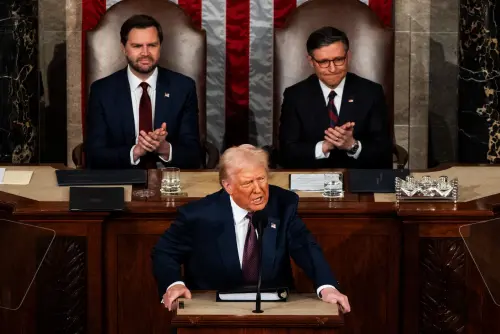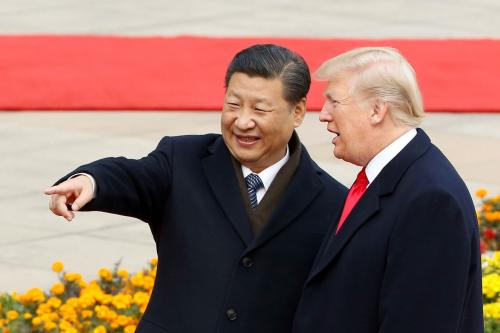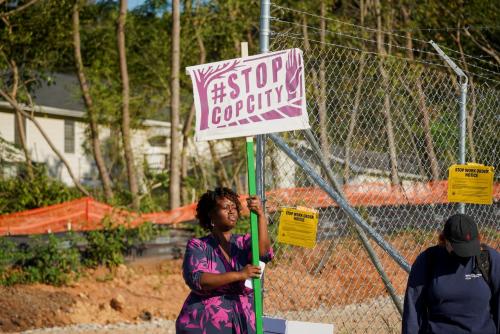On October 14, Max Bouchet, a senior policy analyst in the Brookings Global Economy and Development program, hosted Henri-Paul Normandin, director for international relations for the city of Montreal for a discussion of his experience as a city diplomat and the role that cities play in achieving global agendas.
Watch the whole conversation here or read the highlights below.
After a long career as a Canadian diplomat that led him to serve as both ambassador to Haiti and ambassador and deputy permanent representative to the United Nations, Henri-Paul Normandin was appointed by newly-elected Mayor Valerie Plante in 2017 to lead Montreal’s international relations. As a global city connected to foreign locations through flows of trade, investments, people, and ideas, Montreal is a city fluent in cross-border networks.
Most city leaders find it hard to communicate to residents the value of city networking and global city cooperation. Global affairs often feel distant to local communities, and this requires city diplomats such as Henri-Paul Normandin to be clear about the value and impact of their activity.
Montreal’s international engagement connects to issues that are both local and global priorities, from climate action and biodiversity, radicalization and extremism, to migration. Cities are taking action on these global issues that have an impact on local communities, adopting frameworks such as the Sustainable Development Goals (SDGs). Cities and city leaders are seeking a seat at the table on these topics and to have their perspectives included in global policymaking, and they are increasingly banding together through city networks to achieve this. This success of city networks is indicative, in Henri-Paul Normandin’s belief, of the overall usefulness and influence of city collaboration: “Our collective voice is so much stronger than our individual voice.”
The Brookings Institution is committed to quality, independence, and impact.
We are supported by a diverse array of funders. In line with our values and policies, each Brookings publication represents the sole views of its author(s).








Commentary
A conversation with Henri-Paul Normandin, director of international relations for the city of Montreal
October 30, 2020